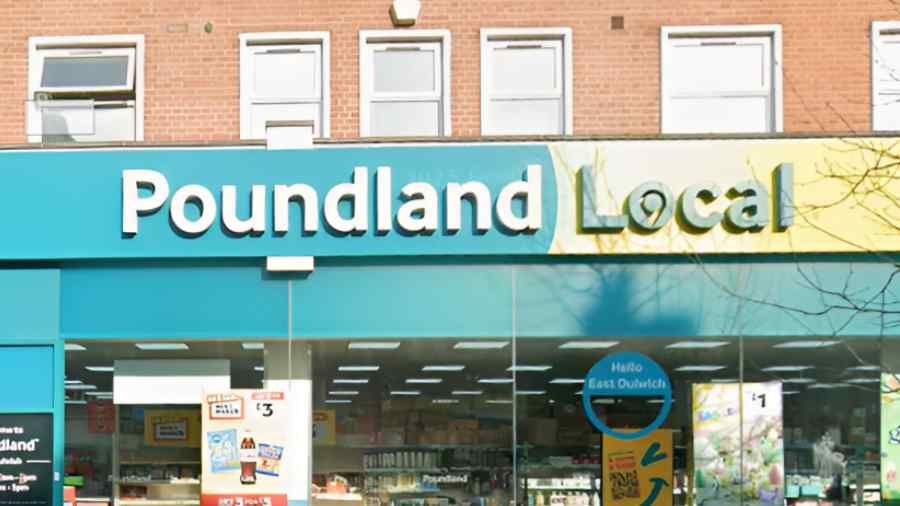Poundland East Dulwich: A Local Shopping Icon Facing Change

Poundland East Dulwich has long stood as a familiar and practical stop for local shoppers in South London. Situated along the lively Lordship Lane, it became a symbol of convenience, affordability, and accessibility in one of London’s most character-filled neighbourhoods. Over the years, the store has served families, students, and residents alike with everyday essentials—offering everything from household goods to snacks, beauty products, stationery, and seasonal items.
However, the story of Poundland East Dulwich is not just about low prices and bargain shelves. It’s a reflection of how communities evolve, how shopping habits shift, and how even well-known retail chains must adapt to survive. As reports surfaced about its planned closure, locals began to express both nostalgia and frustration, marking the end of a short but impactful chapter in East Dulwich’s retail life.
The History of Poundland East Dulwich
When Poundland East Dulwich opened its doors, it did so with the promise of providing affordable products to an area traditionally known for its mix of middle-class families and independent retailers. The concept was simple: everything under one roof at budget-friendly prices. This model appealed to many, especially during times of economic uncertainty, when the cost of living in London was climbing steadily.
Lordship Lane, where the store was located, has long been known for its blend of local shops, cafés, and independent businesses. The addition of Poundland brought something new—a large-scale value store catering to a broad audience. While some residents initially questioned whether such a store fitted into the “upmarket” identity of the area, others quickly embraced it as a practical alternative to high-street prices.
Over time, Poundland East Dulwich became part of daily routines. Parents popped in for school supplies, pensioners picked up their weekly necessities, and young professionals stopped by for quick household fixes. It was, in many ways, the epitome of modern convenience—affordable, accessible, and easy to reach.
Community Reactions and Local Sentiment
The community response to the presence of Poundland East Dulwich has always been diverse. For many locals, the store represented fairness and inclusion—a reminder that affordable shopping options should exist in every part of the city, regardless of postcode wealth. Others viewed it as an odd fit for an area increasingly filled with coffee shops, boutique stores, and organic food markets.
In community discussions, particularly online forums and local groups, the term “reverse gentrification” became a talking point. Residents debated whether having a Poundland in East Dulwich symbolised a shift away from the area’s rising exclusivity, or whether it was simply part of a balanced and inclusive high street. Whatever the viewpoint, one fact remained clear: Poundland East Dulwich had become an established part of the neighbourhood’s identity.
When news of its closure emerged, it triggered a wave of reactions. Many regular customers expressed disappointment, worrying about losing a convenient and affordable shopping destination. Others speculated about what would replace it—rumours of a Tesco Express began circulating, leading to further debates about corporate dominance on local high streets.
The Reasons Behind the Closure
Poundland’s decision to close several of its branches, including the East Dulwich location, is part of a wider restructuring effort by the company. Retailers across the UK are facing major challenges—rising rent costs, shifting consumer behaviour, and the rapid growth of online shopping have all taken a toll. Even discount retailers, once considered recession-proof, have had to rethink their strategies.
In the case of Poundland East Dulwich, it appears that footfall and overhead costs no longer aligned favourably. The retail space, while well-positioned, sits in an area where competition for prime property is fierce and local demographics have changed significantly. Many residents now prefer shopping online or at supermarkets that offer a broader product range and loyalty schemes.
The pandemic years also reshaped shopping patterns. As remote work became more common, weekday foot traffic declined in many town centres, including East Dulwich. Combined with inflationary pressures and corporate cost-cutting, these factors made closures like this one almost inevitable.
Economic and Social Impact on East Dulwich
The closure of Poundland East Dulwich has more than just retail implications—it also reflects the social and economic shifts taking place in the community. Affordable retailers play an essential role in maintaining accessibility within urban areas. They serve individuals and families who might struggle with higher prices elsewhere, offering a sense of fairness in increasingly expensive postcodes.
For many residents, particularly those on lower incomes or fixed pensions, Poundland was not simply a shop—it was a lifeline. Losing it means travelling further to nearby areas such as Peckham or Forest Hill to find similar stores. This creates an inconvenience that disproportionately affects elderly and working-class shoppers.
From an employment perspective, the closure also affects local staff members, some of whom have worked there since its opening. Retail jobs are often an important source of local employment, especially for young workers or those seeking flexible hours. The disappearance of such opportunities contributes to a broader trend of retail job losses across the country.
What Comes Next for the Site
Speculation about what will replace Poundland East Dulwich has been ongoing. The most commonly mentioned possibility is a Tesco Express. While some residents welcome the idea of another well-known supermarket brand providing quick groceries and essentials, others feel it adds to the homogenisation of the high street.
Lordship Lane is already home to a mix of independent stores and chains, so opinions differ on whether another corporate retailer will enhance or diminish its character. Supporters argue that a Tesco Express would ensure the space remains active and accessible, while critics believe it would further reduce diversity and choice.
The future of the site will likely depend on broader retail trends in East Dulwich. As more residents prioritise sustainability and localism, there may be a growing appetite for smaller, eco-friendly, or community-driven businesses. Time will tell whether the replacement continues the legacy of convenience or marks a shift toward a different kind of commerce.
The Broader Context of Retail Change
The story of Poundland East Dulwich fits into a larger national narrative about the transformation of Britain’s high streets. Across the UK, many well-known chains have faced similar fates—struggling with higher operational costs, declining sales, and the dominance of e-commerce. The “pound shop” model, once a booming concept in the early 2000s, is finding it harder to thrive in a market that now expects both low prices and online convenience.
At the same time, local shopping patterns are influenced by socio-economic factors. Areas like East Dulwich have seen rising property values, an influx of younger professionals, and a cultural shift toward independent cafés and niche retailers. While this gentrification brings investment and vitality, it can also squeeze out the affordability that once defined neighbourhood diversity.
Poundland East Dulwich’s journey—from its much-discussed opening to its closure—therefore mirrors the challenges faced by many urban communities trying to balance identity, progress, and accessibility.
Public Memory and Cultural Significance
Though it operated for only a few years, Poundland East Dulwich left an imprint on the community. Its opening was seen by some as unexpected, yet its departure feels like a small loss of inclusivity. For many families, it offered an everyday reminder that affordable shopping didn’t have to mean long trips or online orders.
In a world where shopping is increasingly digital, physical stores like Poundland serve an important social function. They provide casual human interaction—a chat at the till, a smile from a familiar staff member—that online retailers cannot replicate. Such experiences add texture and warmth to urban life, reminding us that communities are built not only through housing and parks but through shared spaces of daily habit.
Reflection on Changing Consumer Habits
Modern consumers are becoming more selective, not just about price but about values, sustainability, and ethics. As awareness grows, many shoppers prefer local and eco-conscious brands over large discount chains. Poundland, despite its widespread appeal, has struggled to fully align with these evolving priorities.
However, its departure also reveals a paradox. While people voice support for small, sustainable retailers, many still rely on affordable chains when budgets tighten. The disappearance of such stores therefore exposes the tension between ideals and reality—between the image of a polished high street and the need for inclusivity in urban economies.
Conclusion
Poundland East Dulwich represents more than the story of a single store—it encapsulates the shifting balance of modern British retail. Its opening once signified accessibility and diversity; its closure now highlights the pressures facing value-driven businesses in a changing marketplace.
For the residents of East Dulwich, it will be remembered as a convenient, friendly place that served real needs in an increasingly expensive city. Whether its space becomes a Tesco Express or something entirely new, the legacy of Poundland East Dulwich lies in its brief but meaningful reminder: affordability is not just a market strategy—it’s a social necessity.



